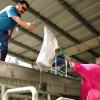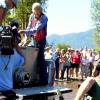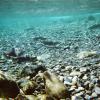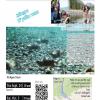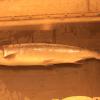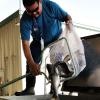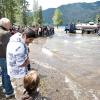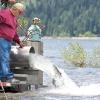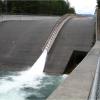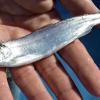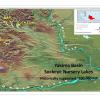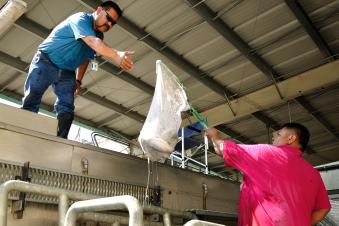Four nursery lakes in the Yakima River Basin, which historically produced an estimated annual return of at least 200,000 sockeye, were removed from production in the early 1900s when irrigation storage dams were constructed without passage. The Yakama Nation is working with the U.S. Bureau of Reclamation and other Yakima Subbasin partners to restore fish passage to all of these historical lakes with initial emphasis on Cle Elum and Bumping lakes. A preliminary juvenile passage flume was constructed and tested at Cle Elum Dam in 2006 and 2007. Based on the success of this and other prior work, the Yakama Nation negotiated an agreement with the U.S. v Oregon parties to transplant adult sockeye from Priest Rapids Dam to Lake Cle Elum contingent on run size.
The Yakama Nation would like this project, combined with other efforts to restore the Subbasin's habitats and ecosystems, to eventually lead to self-sustaining, harvestable returns of sockeye to the Yakima Basin.
Thousands of adult sockeye have been transplanted to Lake Cle Elum since 2009. The sockeye successfully spawned in tributaries above the Lake in all years and the first native-born sockeye have returned to the Yakima Basin in over 100 years. A juvenile passage structure is now under construction that will allow juveniles to migrate from the lake regardless of water level. The structure is expected to be operational by 2023. Adults returning to Cle Elum Dam will be transported above and released in the Lake to continue on to the natural spawning grounds.
Project Photos:
Project Videos:
Status: Active
09/06/2005 - PresentProject Manager
-
Brian Saluskin ,
Fish Passage Biologist
passagebio@qwestoffice.net

